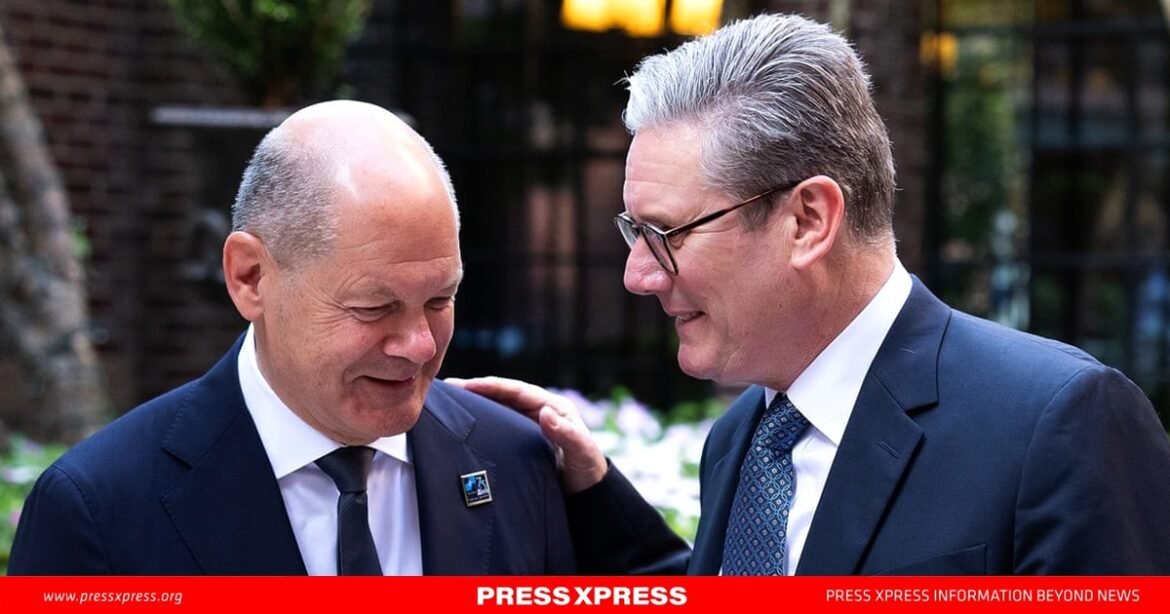In his first official visit to Brussels as Prime Minister, Keir Starmer aims to steer UK-EU relations in a more practical and cooperative direction. Following his Labour Party’s electoral win, Starmer has expressed a commitment to resetting ties with the European Union without revisiting the core Brexit agreement. The primary focus will be enhancing cooperation on critical issues like trade, security, and youth mobility. Starmer’s approach emphasizes a departure from the more strained relations of recent years, advocating for pragmatism and maturity in dealing with shared challenges.
The European Union has shown interest in building a joint security framework with the UK, but negotiations around trade and mobility are expected to be more complex. Starmer’s stance is clear: there will be no return to the EU’s single market, customs union, or freedom of movement agreements. However, he seeks adjustments in specific areas, such as a veterinary deal to simplify border checks and the mutual recognition of professional qualifications. These moves indicate a willingness to address practical concerns that have emerged post-Brexit, particularly in easing logistical barriers for industries and citizens alike. As Starmer embarks on these talks, he must balance EU demands—such as the potential for a youth mobility scheme—against domestic political realities, ensuring any agreements benefit the UK’s long-term interests.
A Mutually Beneficial Collaboration
One of the key elements of Starmer’s reset agenda is a joint UK-EU security pact, which has garnered mutual interest. The cooperation would allow both parties to confront international security threats with a united front, enhancing intelligence-sharing, counter-terrorism efforts, and cyber-security measures. This pragmatic approach aligns with the need to safeguard regional stability, especially with Europe facing ongoing geopolitical risks from Russia and other adversaries.
Such a pact could reinvigorate diplomatic ties between the UK and EU, especially given the erosion of trust since Brexit. Starmer’s efforts to cultivate a warmer relationship with EU leaders are evident in his recent visits to major European capitals. However, while the tone may have improved, translating goodwill into substantive agreements will be challenging. The intricacies of security arrangements, particularly the extent to which the UK and EU can share classified information, will need to be carefully negotiated. Failure to strike the right balance could limit the effectiveness of any agreement, leaving both sides vulnerable to future threats.
Can Pragmatism Overcome Political Hurdles?
Trade remains one of the thorniest issues in the UK-EU relationship post-Brexit, with lingering disputes over border checks and regulatory alignment. Starmer is pushing for a new veterinary agreement that could reduce cumbersome checks on goods, particularly those crossing the Northern Ireland border. Such an agreement would alleviate some of the friction caused by the current arrangement, which has disrupted supply chains and frustrated businesses on both sides.
Despite these challenges, the Labour government has ruled out any major renegotiation of Brexit. The refusal to rejoin the single market or customs union limits how much flexibility the UK can expect from Brussels. Yet, Starmer’s focus on incremental improvements—such as simplifying border procedures for goods and professionals—reflects a pragmatic strategy aimed at minimizing disruption while respecting the Brexit vote. These tweaks may provide relief to key sectors like agriculture and manufacturing, but the broader economic impact of Brexit will likely persist unless deeper integration is pursued.
Youth Mobility and Professional Access
One of the more contentious points in UK-EU negotiations is youth mobility. The EU has been advocating for a scheme that would allow young Europeans and Britons to live and work in each other’s territories for up to four years, promoting cultural exchange and economic opportunity. Starmer, however, has rejected this proposal in its current form, reflecting a delicate balance between EU demands and domestic opposition to increased immigration.
This stalemate could hinder progress in other areas, such as the mutual recognition of professional qualifications, which is high on Starmer’s agenda. For British professionals, particularly in fields like law, medicine, and engineering, easier access to the EU market would be a significant win. Yet, without concessions on mobility, it remains uncertain how far the EU is willing to go in accommodating the UK’s requests. Starmer will need to carefully navigate these discussions, possibly offering a compromise that satisfies both EU leaders and his domestic base.
A Gradual, Pragmatic Path Forward
Keir Starmer’s diplomatic tour through Europe reflects his intention to restore stability and cooperation in UK-EU relations, but significant challenges remain. His strategy avoids revisiting the fundamental Brexit agreement, focusing instead on pragmatic adjustments that could ease tensions and promote collaboration in key areas like security, trade, and professional mobility. However, Starmer’s refusal to embrace more comprehensive changes—such as re-entering the customs union or agreeing to full youth mobility—highlights the limits of his approach.
Conclusion
Keir Starmer’s push for a reset in UK-EU relations has stirred mixed public reactions. Supporters argue that strengthening ties with the EU is crucial for economic stability and addressing post-Brexit challenges. They view it as a pragmatic step towards rebuilding damaged trade and diplomatic connections.
Critics, however, see it as a reversal of Brexit’s promises, fearing a loss of sovereignty and control over UK policies. Overall, the public remains divided, with some welcoming the potential benefits of improved cooperation, while others are wary of drifting back towards closer EU alignment.


